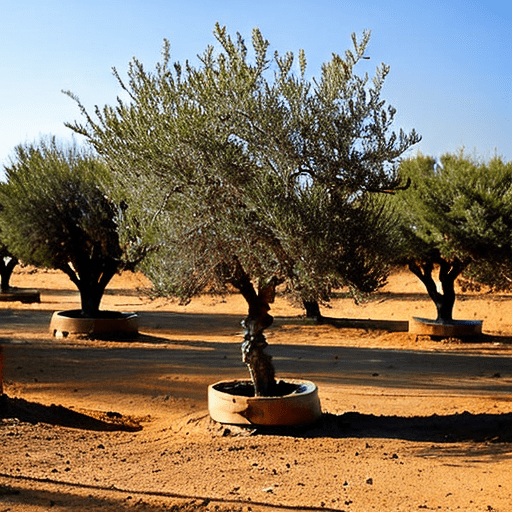The Symbolic Significance of the Two Olive Trees: Lessons for God’s People


Introduction: The symbolism of the two olive trees in the Bible captivates our curiosity and offers profound insights into God’s work and the role of His people. Appearing in prophetic visions in Zechariah 4 and Revelation 11, these olive trees hold significance for understanding God’s plans and our calling. Exploring their representation and lessons enables us to glean valuable wisdom for our lives today.
Zechariah 4: The Anointing and Empowerment of God’s Servants: In Zechariah’s vision, the golden lampstand with seven lamps and the two olive trees are connected. The angel explains that the olive trees represent Zerubbabel and Joshua, symbolizing God’s anointing and empowerment for His servants. They signify the reliance on the power of God’s Holy Spirit, rather than earthly resources, to accomplish His purposes. This vision serves as a reminder that God’s anointing and guidance enable His people to overcome obstacles and fulfill His will.
Revelation 11: Empowered Witnesses and Light Bearers: In John’s vision, the two witnesses in the tribulation period are described as the “two olive trees and the two lampstands that stand before the Lord of the earth.” These witnesses possess the power to prophesy and resist their enemies, symbolizing the Holy Spirit’s anointing and enabling. The two olive trees represent the continuous supply of the Spirit’s power to keep the witnesses empowered and shining as lights in a dark world. The lampstands also highlight the role of churches and believers in illuminating God’s truth.
Lessons from the Two Olive Trees:
- God’s Sovereign Plan: The presence of the two olive trees underscores God’s sovereignty over history and His unwavering plan for His people. Despite opposition and persecution, God’s purposes prevail, offering hope and encouragement in challenging times.
- Empowerment through God’s Spirit and Word: The olive trees remind us that God equips His servants through the anointing of His Spirit and the guidance of His word. This divine empowerment enables us to fulfill our calling and overcome obstacles that may hinder our progress.
- Faithful Witnessing: The symbolism of the olive trees inspires believers to faithfully shine as witnesses for Messiah. Just as the witnesses in Revelation 11 proclaim God’s truth, we are called to boldly share the light of the Gospel in a dark and hostile world.
- Hope in Resurrection and Glory: The two witnesses’ resurrection and ascension symbolize the hope of God’s promise for those who remain faithful. Their ultimate triumph echoes the promise of resurrection and the glorious future awaiting those who overcome by faith.
Conclusion: The two olive trees in the Bible unveil essential lessons for God’s people today. They remind us of God’s sovereignty, His provision of His Spirit and Word for empowerment, and the calling to be faithful witnesses in a dark world. As we embrace these lessons, we find strength, hope, and purpose in fulfilling God’s will. Let us trust in His anointing, shine as lights in the darkness, and eagerly anticipate the resurrection and glory that await those who remain faithful to the end.

